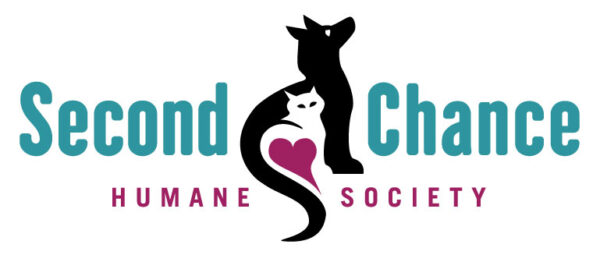
08 Mar Second Chance: Returning Pets to Their People!
Second Chance Humane Society’s Animal Resource Center (SCHS) and Thrift Shops have been serving San Miguel, Ouray & Montrose Counties since 1994. The shelter is open to the public Tuesday through Saturday 11 to 5:30. Community veterinary services are available by appointment.
View shelter pets and services online: www.adoptmountainpets.org.
Go here for more on Dr. Shari DePauw of Second Chance. Second Chance veterinary clinic is open Tuesday, Wednesday, and Friday. Call (970) 626-9713 or email clinic@adoptmountainpets.org
Go here for more options from Second Chance.
The following is the third in a series of Pet Columns highlighting our 2022 Impact Statistics.

One of our 2022 statistics makes us sad – we reunited only 24 pets with their people. Despite reaching out to the public when we receive a found pet, calling other shelters to see if anyone reported the pet missing, and checking social media for lost pet posts- only 9 dogs and 15 cats made it back home.
Most pets who come in as strays arrive without identification. No collar, no tag, and no microchip. That makes it very challenging to find their home. If they have one.
Collars and tags are great; every pet should have one. If your pet wanders off, it’s likely to be a private citizen who encounters them first. That’s why, in the event of accidental separation, identification tags are your pet’s first ticket home and can help to avoid a trip to the shelter.
But collars and tags can be lost or removed. Microchips are a permanent identification system that will always be with your pet. Shelters, animal control, and veterinary clinics across the country routinely scan for the presence of a microchip.
How do microchips work?
Microchips are about the size of a grain of rice and are implanted just under the skin, usually right between the shoulder blades. Each chip contains a unique ID number that can be read by a microchip scanner and matched with owner information in a database. If your pet is chipped, it is imperative you always update your contact information promptly when you move or get a new phone number.
Microchips save lives. With approximately 6.5 million companion animals ending up in shelters across the country each year (and 1.5 million euthanized), keeping a form of identification on your animal is a simple remedy. But sadly, only about 710,000 pets who enter shelters annually are returned to their owners. (Yes, out of 6.5 million!)
Regular microchips do not have GPS capability to locate a missing pet, so your pet cannot be tracked by a government entity or identified beyond a range of about three to 12 inches. A microchip implant helps to recover lost pets turned into an animal shelter, animal control, veterinarian’s office, or any entity utilizing scanners to identify lost pets.
Microchips do not require a battery or other power source, so they are good for the life of the pet. And they are virtually free of health risks. The American Veterinary Medical Association data collection has shown only 391 adverse reactions among over 4 million pets microchipped.
We offer microchipping at our Veterinary Services clinic for only $30 ($15 for our low-income customers). Make an appointment.
My name is Olive. I came into Second Chance as a stray with no collar, no tag, and no microchip. I’m a young, silly, beautiful, tortoiseshell girl who would love to be part of your family.

Olive
AND… To continue the Second Chance Highlights section, we want to share the following:
Second Chance has extended the deadline for our spay/neuter fundraiser: https://givebutter.com/3G6XBO


Sorry, the comment form is closed at this time.